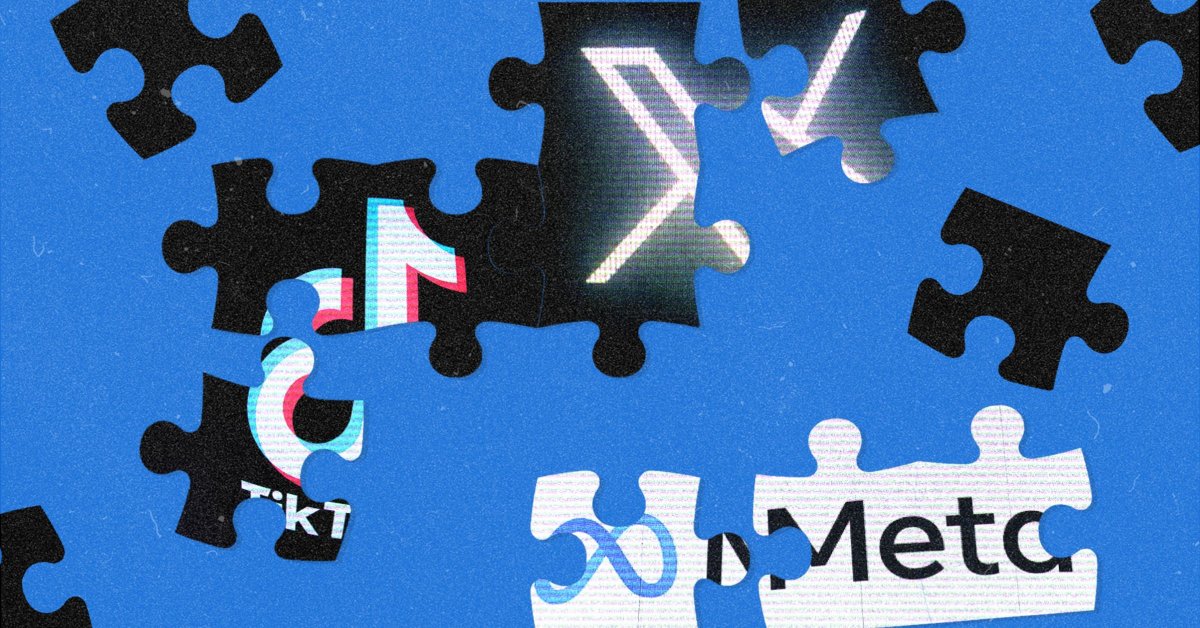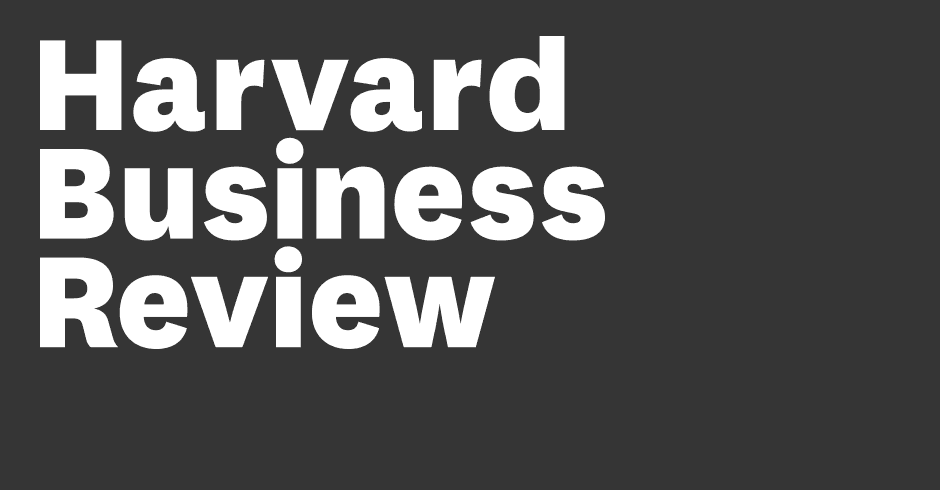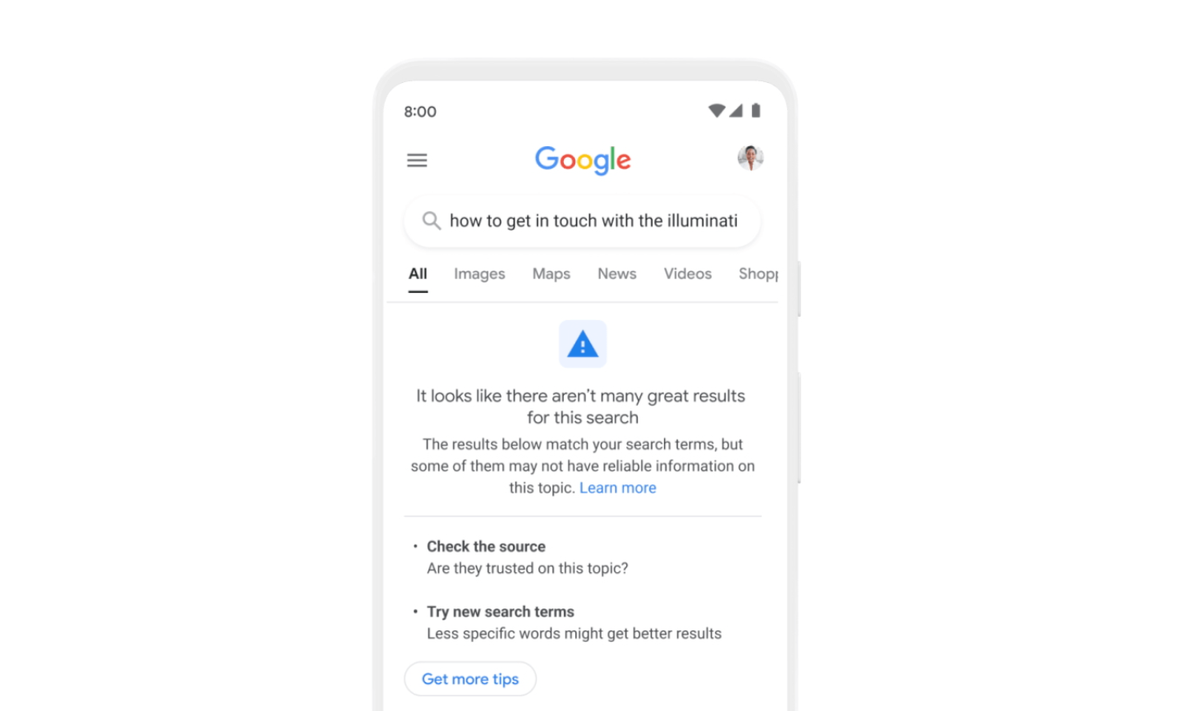This week's best things
Advice for content teams on website redesigns, how to fix social media, inattention, hopeful technologists, understanding ease, BBC research on AI inaccuracies, a new digital museum, an experimentation framework, innovation at TodayTix, and a Bruce Springsteen cover.

Advice for content teams about website redesigns
I've shared Lauren Pope's perspective before, that's because Lauren is really good and smart.
I was fortunate enough to work with Lauren on a project a few years ago and as I've written elsewhere she was really the person who opened my eyes to just how transformative content expertise can be, particularly on web projects.
In this piece, Lauren shares her advice for content teams on website redesigns, although this advice is worth reading if content comes anywhere near what you focus on (it almost certainly does).
"At the first whisper of a redesign, start making your case for how you want to be involved.
I’ve seen so many projects where the content team isn’t brought in until the final stages. At which point you’re asked to play copy Tetris and fit the old content into the new site structure and templates, and find out that you’re stuck with a ‘News and blog’ section that you have no use for.
Content leaders should be a key stakeholder, decision-maker, and contributor to almost every part of a redesign project. If there’s a steering committee, content should be part of it. Content should be closely involved in — if not responsible for — the information architecture. The content strategy should inform the whole project. The page designs should reflect the content model. Content should have a say in the choice of CMS. Work with whoever is accountable for the project to help them see why and how you need to be involved."

New website for National Museums Scotland
And while we're thinking about web redesigns, here's a new website for NMS from the team at Supercool.
NMS shared a short post about the project on LinkedIn.
It's neat and tidy and fine. Apparently they tested it with loads of users so this probably is what their users want. I suspect it was probably a complex project.

My Life in Weeks
Spotted via Matt Muir's Web Curios newsletter.
My Life in Weeks is a really lovely data visualisation project from software engineer, Gina Trapani.
"This is a map of my life, where each week I’ve been alive is a little box. Tap a box to see what I was doing where that week."
Social Media Fails Many Users: Experts Have an Idea to Fix It
An interesting article in Time that reports on a new paper which identifies some causes, and proposes some answers to some of the issues that plague social media.
"A fundamental issue with today’s platforms—what the authors call “antisocial media”—is that while they have access to and profit from detailed information about their users, their behavior, and the communities in which they exist, users themselves have much less information. As a result, people cannot tell whether the content they see is widely endorsed or just popular within their narrow community. This often creates a sense of “false consensus,” where users think their beliefs are much more mainstream than they in fact are, and leaves people vulnerable to attacks by potentially malicious actors who wish to exacerbate divisions for their own ends. Cambridge Analytica, a political consulting firm, became an infamous example of the potential misuses of such data when the company used improperly obtained Facebook data to psychologically profile voters for electoral campaigns.
The solution, the authors argue, is to explicitly label content to show what community it originated from, and how strongly it is believed within and across different communities. “We need to expose that information back to the communities,” says Tang."
This feels like its analysis is half right, the other huge issue with social media is the addictive nature of the user experience and the way it shoves enraging content into your face.
There is a commercial incentive to promote provocative content because that's the stuff that people engage with most.
You can have all the labels you want, but if people are hooked to their phones for many hours a day and psychologically hard-wired to get inflamed by what they're seeing most of, you're still going to have lots of problems.

The inattention pandemic
This piece in the New Statesman reviews The Sirens' Call, a book by Chris Hayes about the attention economy and its potentially ruinous impact on society.
"Hayes is a fascinating guide across this familiar territory: our frantic yet gradual self-strangulation by digital addiction. Just as industrialised food leaves us both “stuffed and starved”, the economic incentive structure of the “attention economy” perfects what grabs our attention, whether it leads anywhere interesting or – more likely – not."

A Union for Hopeful Technologists
Rachel Coldicutt asks "what if progressive people who work in technology had an advocacy body?".
Rachel is an extremely smart, thoughtful, and experienced voice across technology. And specifically how technology interacts with society, government, and policy.
Her idea sounds like the sort of thing that cultural organisations may be interested in keeping an eye on, or joining as active participants.
"Throwing some words around here as a starting point, I’m going to make a punt that it means:
- A group of technologists, designers, researchers, and policy specialists united in our pursuit of progress towards a just and sustainable democratic society that upholds and protects human rights and prioritises care for people and planet.
As words go they are perhaps a bit grand and arm-wavey but they are a start.
If you think this sounds like a good idea, here’s a short (3-question) survey you can fill in. And if it feels like a really great exciting idea, drop me an email at [email protected] and we can have a chat."
Got need > Go to app
The latest edition of Mathew Wilson's Imagineering newsletter is a good read, particularly on the importance (and subjectiveness) of 'ease' and, on a related note, whether choosing to deliver a native app over a browser-based experience for some tasks is the more obvious and expected option.
"The cognitive path of ‘Service need > Open app’, is shorter and easier. And today, as proven by most web vs. app experiences, it’s become the most common route to meeting user needs.
‘Service need > Open browser > Search for website > Select appropriate website link (rather than a sales site or advert for a competitor) > Navigate website > And so on…’ is awkward as hell.
Yes, technically a website could be designed well and brilliantly built, but getting to it involves what today is a marginally more uncomfortable cognitive path.
And yes, the culture of modern front-end web development could align with great effort to resolve a ton of the issues that create such nasty user experience, but in the meantime the cognitive path of ‘Got need > Go to app’ is becoming ever more culturally engrained."
There is still the unavoidable, and significant, hurdle of getting someone to download your app in the first place and then associate it as the default for solving a particular need.
But beyond that, Mathew's analysis feels true.
In the same post he also writes and links to a whole load of other stuff that relates to the state of user experience (and front-end web development) in 2025, which is interesting and worth a read.
"but for the most part though, I believe it’s down to the simple issue of ease. And more particularly, our dysfunctional relationship with addressing it:
The fact we have such differing beliefs about how easy things should or could.
And differing definitions of what easy even means.
But ultimately, that there’s a collective reluctance to consider the topic with collective empathy."
Although given the previous link about the general hijacking of our attention, the conversation around 'ease' and 'friction' perhaps needs to become more infused with ethical considerations than it has been for the last 20 years.

Coach Your Team to Disagree Constructively
This week, former Manchester United manager, Erik Ten Hag, gave an interview in which he commented on the difficulties the current generation of footballers have in receiving criticism.
"The generation that I grew up in had much thicker skin. You could be much more direct.
I was approached much more directly. If I would do that with my current group of players I would demotivate them.
If you do that to the current generation they find it offensive."
Anyway, all of which is to say that this article in Harvard Business Review might be a useful read if you're trying to encourage some direct and frank conversations in your team. It includes some clear, practical advice.
"Too often, teams default to compliance or groupthink, avoiding friction at the cost of innovation. The key to unlocking their full potential is fostering constructive dissent—the ability to challenge ideas respectfully and productively."

Microsoft’s Satya Nadella Pumps the Brakes on AI Hype
Microsoft's CEO says what lots of us are thinking.
"The world has yet to turn any of today’s AI hype and spending into a meaningful lift in the actual economy, says Microsoft CEO Satya Nadella. The comments were made during a podcast interview in which he put a yardstick on AI’s true impact: Success will be measured through tangible, global economic growth rather than arbitrary benchmarks of how well AI programs can complete challenges like obscure math puzzles. Those are interesting in isolation but do not have practical utility.
The comments seem intended to implore insiders to stop spreading hype about a so-called “artificial general intelligence” that could replace humans in most tasks. Nadella said essentially that it will not happen, and either way is an unnecessary distraction when the industry needs to get practical and just try and make money before investors get impatient."

Groundbreaking BBC research shows issues with over half the answers from Artificial Intelligence (AI) assistants
And further on AI, a study from the BBC which highlights just how unreliable AI assistants can be.
New BBC research published today provides a warning around the use of AI assistants to answer questions about news, with factual errors and the misrepresentation of source material affecting AI assistants.
The findings are concerning, and show:
- 51% of all AI answers to questions about the news were judged to have significant issues of some form
- 19% of AI answers which cited BBC content introduced factual errors – incorrect factual statements, numbers and dates
- 13% of the quotes sourced from BBC articles were either altered or didn’t actually exist in that article.
The study, conducted over a month, saw the BBC test four prominent, publicly available AI assistants – OpenAI’s ChatGPT; Microsoft’s Copilot; Google’s Gemini; and Perplexity. These AI assistants were given access to the BBC’s website and asked questions about the news, prompting them to use BBC News articles as sources where possible. AI answers were reviewed by BBC journalists, all experts in the question topics, on criteria including accuracy, impartiality and how they represented BBC content.
This is something I've noticed whenever trying to use these assistants for planning.
The inconsistencies are numerous, and when questioned or challenged the assistants are usually only to happy to contradict what they've previously told you. Which isn't super-reassuring.
This is a(nother) reminder that the accuracy of the content generated by these tools can be highly suspect, regardless of how convincing it might appear.

Meeting agendas don’t work. Here’s why, plus a 3-min alternative you can use for your next meeting
I'm a big fan of the work of Dr Carrie Goucher, she is an expert on meetings and meeting culture and she provides really clear, practical advice on how to improve things.
Her latest newsletter looks at the issue of meeting agendas, and how they are mostly ineffective in their current form.
"We need a social contract to create a pop up team, not a list of content to discuss.
This matters so much more, now we are trying to empower teams and people and collaborate without hierarchy.
Command and control leadership made meeting a socially straight forward activity. A traditional agenda was good enough for this and appropriate for the way value was created.
Collaborative working is not socially straight forward. We need more scaffolding or invisible power structures and ‘stay safe in the tribe behaviour’ will always win."
Americans Are Trapped in an Algorithmic Cage
An insightful (and fairly depressing) piece from Adam Serwer in The Atlantic about the impact of the algorithmically-driven nature of social media experiences in 2025.
"Prior to the invasion of Iraq, many Americans were wrongly convinced, because of a “reality” the Bush administration had managed to “create,” that Iraq had played some part in 9/11 or that it had a large arsenal of weapons of mass destruction. But actual reality intruded. That was before Americans began to be dependent on social media or to see the world through their phones. Will actual reality ever intrude today? The private companies in control of social-media networks possess an unprecedented ability to manipulate and control the populace, to keep them in a kind of algorithmic cage divorced from reality."
And on a related note, I saw this tweet from designer, Maxim Leyzerovich "we’re going to look back at how we designed the world around computers with the same regret that we look at how we’ve designed cities around cars".

Pendle Hill Museum
More interesting because of the intent than the reality (at the moment).
Pendle Hill Museum is "a new digital-first museum" from REMIX co-founder Simon Cronshaw.
"Living online and through immersive storytelling, digital exhibitions and pop-ups. It's a sandpit for exploring what a local museum can be when we start from a blank sheet."


GESET
I bang on about experimentation, and a question I get asked a lot is 'sure this sounds interesting, but we've never worked like that so how and where do we start without it becoming a giant, disruptive nightmare?' (or words to that effect).
So it was useful to see the GESET framework shared in the latest edition of Adam Thomas's Theory Of Change newsletter.
GESET stands for "Good Enough for Now, Safe Enough to Try".
"It’s a simple but powerful framework that helps you act with confidence, avoid decision paralysis, and adapt as you go.
How it works:
Step 1: Ask yourself (or your team/community):
- Do I have any immediate improvement suggestions?
- Would doing this harm us in any way?
If no to both, proceed—it’s Good Enough for Now and Safe Enough to Try.
Step 2: Separate objections from concerns
- Objections = Legitimate risks that could harm the organisation.
- Concerns = Preferences or worries, but not dealbreakers.
Focus on real risks while avoiding unnecessary delays over subjective concerns.
Step 3: Take action and set a review date
Treat every decision as a test rather than a permanent commitment.
Set a time to evaluate and adjust based on feedback.
Why it works
- Breaks decision paralysis. No more endless debates. You move, you learn, you refine.
- Encourages innovation. New ideas get tested in real-world conditions.
- Builds trust and collaboration. Teams feel empowered to take action.
- Saves time. Less talking, more doing."
Iteration at TodayTix
And on the subject of experimentation, I saw a post this week from Joe Shellard, one of TodayTix's directors, talking about the internal processes they have to enable experimentation and iteration (TodayTix is an app through which you can buy tickets, to plays, musicals, etc):
"Every Monday, our small squad of analysts and software engineers review the same key metrics. What actions drove ticket sales? What didn’t?
Then we turn insights into immediate action. This could be building a new app feature, redesigning a webpage or adjusting an email segmentation. We double-down on what worked and ditch what didn't.
We build and ship fast. Everything happens in-week so we can see the results next Monday. No waiting for a roadmap, no lengthy approval chains—just fast iteration based on real-time data."
Whilst you may not have the internal analysts or developers to work exactly like this, there's something to be said for empowered teams making decisions with a clear focus on outcomes, in a fleet-footed way. Maybe you could trial the GESET framework...

Google gives up on data voids
"Google gives up" would be a good summary of the company over the last few years.
In a recent edition of Platformer, they shared a study that found in the weeks leading up to the 2024 presidential election, Google quietly dropped a feature that used to warn of 'low quality results'.
"The study, led by Ronald E. Robertson of Stanford and Evan Williams of Carnegie Mellon, analyzed 1.4 million search queries shared on social media from October 2023 to September 2024. The study focused on “search directives” — social media posts encouraging people to search for specific terms, a practice often used by people who are spreading conspiracy theories. By encouraging people to “do their own research,” and then directing them to obscure results for which there are few high-quality links, they can trade on the trust that people have in Google to spread misinformation.
Beginning in 2022, Google began to show warning banners for some searches like this, which information researchers call “data voids.” Data voids are often exploited by actors seeking to spread misinformation on topics where little authoritative information is available.
In the early 2020s, as part of an industrywide effort to add context to potentially wrong or harmful information, Google added banners about three kinds of data voids: one where search results were of low relevance; one in cases where results are rapidly changing, such as after a natural disaster; and one — which researchers found that Google no longer displays — where the results are of low quality.
“It looks like there aren’t many great results for this search,” the banner for low quality results read. “The results below match your search terms, but some of them may not have reliable information on this topic.” The banner invited users to “check the source,” asking whether it is trustworthy."

Vacancies
Research Engineer - Riksarkivet (Swedish National Archives) - Stockholm, Gothenburg, Uppsala or Täby, Sweden - deadline 16/03/2025
This week's consumption
Not consumption, but a highlight of this week was the sowing and initial germination of the tomato, basil, chilli and strawberry plants I'll be growing this year. Spring is on its way!
We started watching Antoni Porowski's new show on Disney+, No Taste Like Home. It's a sort of charming mix between Who Do You Think You Are and a Rick Stein-esque travel/cooking show. The episode with Awkwafina was particularly moving, she said on Instagram "going back to Korea for the first time in over 30 years was an extremely emotional experience that has changed me . I was able to connect with my mom in ways I never thought possible, and I felt her with me the entire time."
I also watched the episode of Chef's Table (Netflix) with Peppe Guida, mostly because of my recent discovery of the joy of making pasta. This was also very beautifully shot, and a moving story. It was also 10000% Italian.
I came across this very nice cover of Dancing in the Dark by Hot Chip which also turns into a sort of cover of my favourite song, All My Friends by LCD Soundsystem.
See you next week
Thanks for reading all the way to the end. Here is a nicely designed website for Age of Union.
To finish, a quick reminder that I'm a consultant who helps cultural organisations do better digital work - if it sounds like I could be useful, then let's chat.













